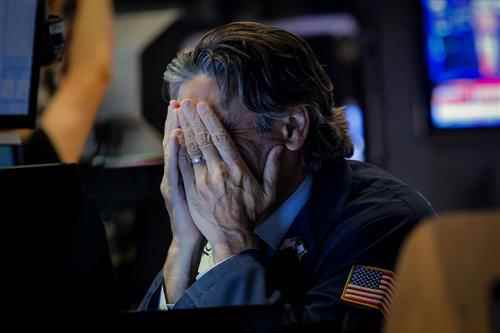(Boursier.com) — The Stoxx 600 is in turn close to falling into the ‘bear market’. While the CAC40 fell by more than 2% at the start of the afternoon, the European benchmark index dropped 2.35% in London, the lowest since December 2020. The index thus posted a loss of more than 20 % from its high of last January and will enter a bearish pattern if it closes around current levels. The ultra-hawkish positions of the major central banks over the past few days, led by the Fed, have reinforced fears of seeing the world economy fall into recession, the fight against inflation being the priority fight for monetary institutions.
“The market is currently trying to determine the extent and duration of the recession in Europe,” said Joachim Klement at Liberum Capital. “It will take a little longer and overall we don’t expect a bottom in this bear market until the first quarter of 2023.” The latest PMI data from S&P Global released this morning showed activity in the eurozone private sector contracted for a third straight month in September, as record inflation eroded demand and forced some businesses to limit their production.
In a sign that European corporate stocks continue to be junk, European equity funds recorded a 32nd straight week of outflows, according to EPFR Global data picked up by Bank of America. More broadly, cash attracted $30.3 billion, while global equity funds saw outflows of $7.8 billion in the week ended September 21. Investor sentiment is “unquestionably” the worst since the 2008 crisis, with losses on government bonds the highest since 1920, the bank’s strategists write.
“We are facing one of the most aggressive and broad-based global monetary tightening in a generation,” James Athey, chief investment officer at Abrn, told Bloomberg. “I find it incredible that the equity market is down around 20% and that is considered to be in line with the assessment of macroeconomic conditions. The reality is that earnings forecasts still do not reflect the likelihood of a slowdown. significant for future growth”.
In this environment, only the greenback stands out. The dollar index, which measures the fluctuations of the greenback against a benchmark basket, jumped 0.79%, the highest since May 2002. The euro gave up helping its side 0.89% against the dollar at 0 .9748, on a level not seen since 2002, and the pound sterling plunged 1.9% to $1.1033, the lowest since 1985!
